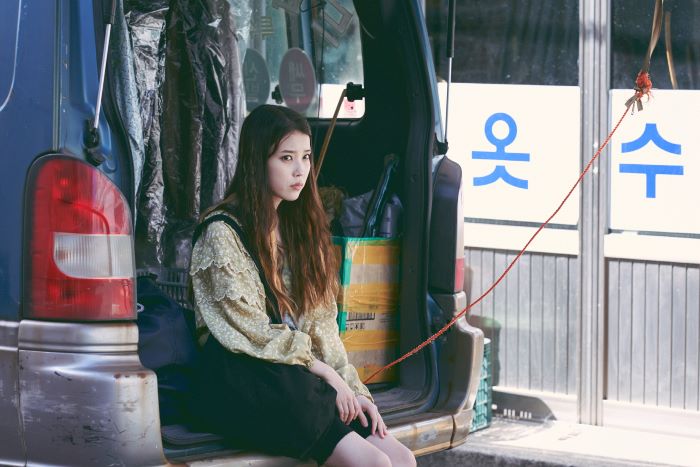Broker is Hirokazu Kore-eda’s first film made in South Korea, though it’s not his only time working outside of his native language and country. Comparable to the French-language The Truth, Kore-eda’s first filmmaking excursion outside of Japan, his new film is understated, thanks to the acting, although it’s more plot driven.
Sang-hyeon (Song Kang-ho, who you might recognize from Parasite) and Dong-soo (Gang Dong-won) are part of a baby trafficking ring linked to a Busan church, where Dong-soo works. After a young mother leaves her baby boy at the church, the men smuggle the baby out. However, the mother, So-young (Lee Ji-eun), changes her mind and wants her infant back the following day. Surprised that she has returned, Dong-soo comes clean, privately telling her that he and Sang-hyeon will find her son a better home than she could ever provide, and also reminding her that she abandoned him. After she asks how much money is involved, she agrees to work with them to find a buyer for the baby and share the profits. (Sang-hyeon and Dong-soo assume prospective parents would be reassured to meet the birth mother.) However, all along two detectives have been trailing the trio’s every move, hoping to bust them during a transaction.
With elements of a road-trip movie and a crime thriller, the two traffickers and So-young travel the country to meet possible buyers. The camera jumps from their car to the police following closely behind, cutting back and forth between the conversations happening simultaneously in each. It’s not a coincidence Kore-eda began his career working on documentaries. As in many of his films, the camera focuses on small aspects of daily life through long takes of everyday occurrences.
The trio’s first meeting with potential parents is so reprehensible that it becomes comical. The would-be buyers ask if Photoshop was used because the baby in the sent photo doesn’t look as cute in person. Also, his eyebrows are too thin. They haggle and try to purchase the baby for four million won in installments instead of ten won (the going price for a baby boy). So-young quickly cuts to the chase and cancels the transaction. In a later touching scene, she discreetly sings her baby a lullaby (the actress is also a famous singer), further confusing the police monitoring them, who have set up a wiretap.
The theme of abandonment and rejection shadows all the characters. So-young is a prostitute who, as an adolescent, was found and taken in by a madam. Sang-hyeon has a complicated relationship with his own daughter. Dong-soo was abandoned as a baby and placed in an orphanage. An eight-year-old boy from that same orphanage sneaks into the van, effectively becoming the fourth member of gang—the restless boy is considered too old to be adopted. Like in his 2018 Palme d’Or winner Shoplifters, Kore-eda’s story brings together social outcasts who form an unconventional familial bond.
This theme more fully comes to fruition when Sang-hyeon’s van is stopped by an oblivious policeman because the back door is open. As the three adults nervously try to assemble alibis (should Sang-hyeon and So-young act as wife and husband? Distant cousins?), the policeman immediately assumes they are a family. They all play along and take to their aliases naturally. More tender moments ensue, and it’s only after this interaction that So-young and Sang-hyeon reveal their real names.
Conversations centered on morality abound: So-young tries to justify abandoning her baby, the two brokers believe they are doing good by selling him, and a police detective simply can’t understand a woman who abandons her baby. And with a line like “Thank you for being born” from mother to the baby she’s abandoned, one could perceive the film as anti-abortion rhetoric, or merely interpret the line as guilty sweet talk. As such, the film becomes thematically a little heavy-handed, similar to The Truth’s emphatic ideas on reality and memory.
At times relying too closely on a musical score to help set the tone, this is perhaps Kore-eda’s most explicitly sentimental film, and not as successfully intimate as Shoplifters. Still, Kore-eda succeeds in his intricate storytelling: More comes to light in trivial exchanges than in ethical dilemmas.







Leave A Comment